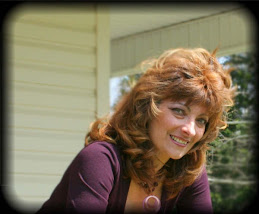What's a theme?
It's sometimes called the lesson, moral, or main idea behind the story. But theme is really more than that. In literary terms, the theme is the "take-away" value of the story. It's what the reader is left pondering after they've read the last word.
I've taken the following from the writing blog of Gayle Martin, because she explains theme quite succinctly. http://www.gailmartin.com/
Theme weaves through the plot, setting, and characters in a translucent thread that the reader extracts from his own experience or values. It communicates something deeper to readers than plot or story. Theme triggers an emotional response from readers, and without an emotion reaction, the story’s theme is usually weak or non-existent, or too vague to be comprehended.
Theme presents an infinite truth that makes a powerful impact on readers. It is often tangled in the goal of a the protagonist. It triggers emotion which is what clings to readers once the pages on the book have been closed and makes the story worth reading. Emotion has power to transport your story beyond entertainment as the them provides the impact of a universal meaning to your story.
This may sound vague, but theme is abstract, providing the heartbeat of your story. It cannot be forced. Author’s bring it to life by allowing the story’s truths to slip into the action, dialogue, introspection, and soul of the characters.
Some try to summarize this process by explaining it this way. Ask yourself, what did you learn from this novel? How did it touch you? Joy Cagil author of a blog on fiction writing suggests you ask this. What is the protagonist’s biggest decision to resolve the story’s conflict? These questions are about as close as you can get to defining theme. It is the underlying principle that motivates the protagonist to reach his goal, and it is a truth—belief or perspective—which most people hold in common.
Common themes might be that good defeats evil, money causes corruption, love makes the world go round, lies begat lies, gossip destroys, success is not measured by a bank account, jokes can backfire, friends stand by your side, people were not meant to be alone, freedom is better than servitude, love conquers all. I’m sure you can think of many, many others.
Think of novels you’ve read that have stuck with you and ask yourself why do you still remember this story? Besides plot, what message or value or truth did it leave you with? How did it impact your emotions? What did you take away with you when the book was finished? When you find the answer, you’ve most likely identified the theme of the novel.




